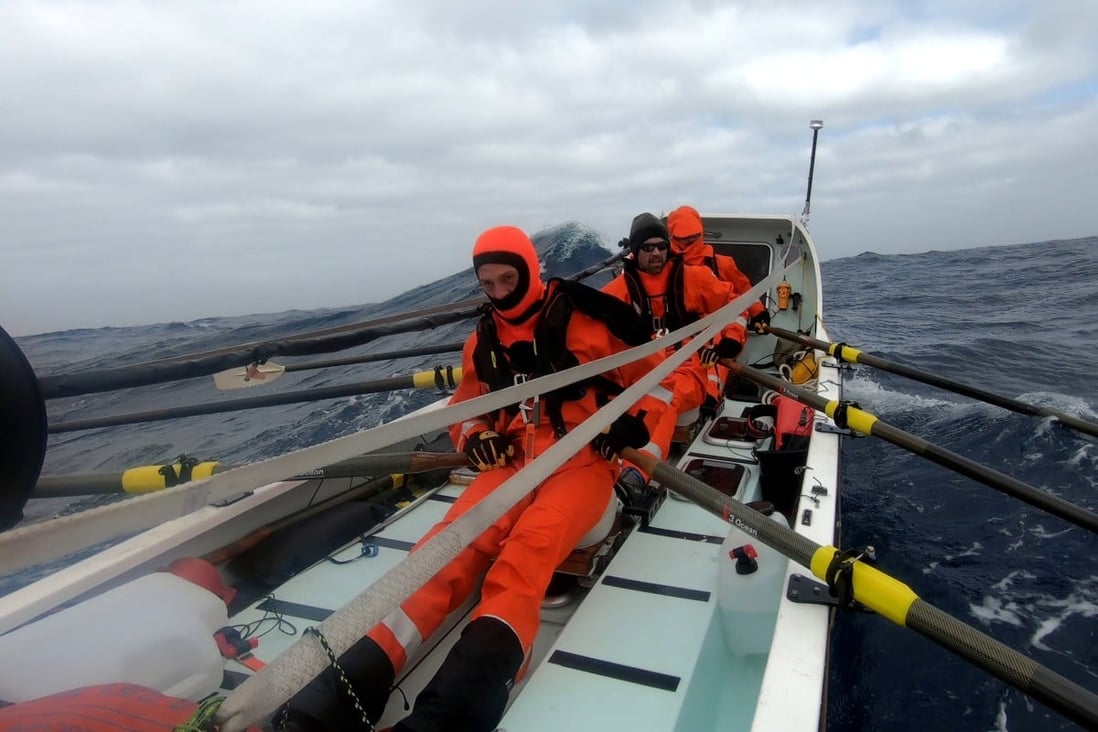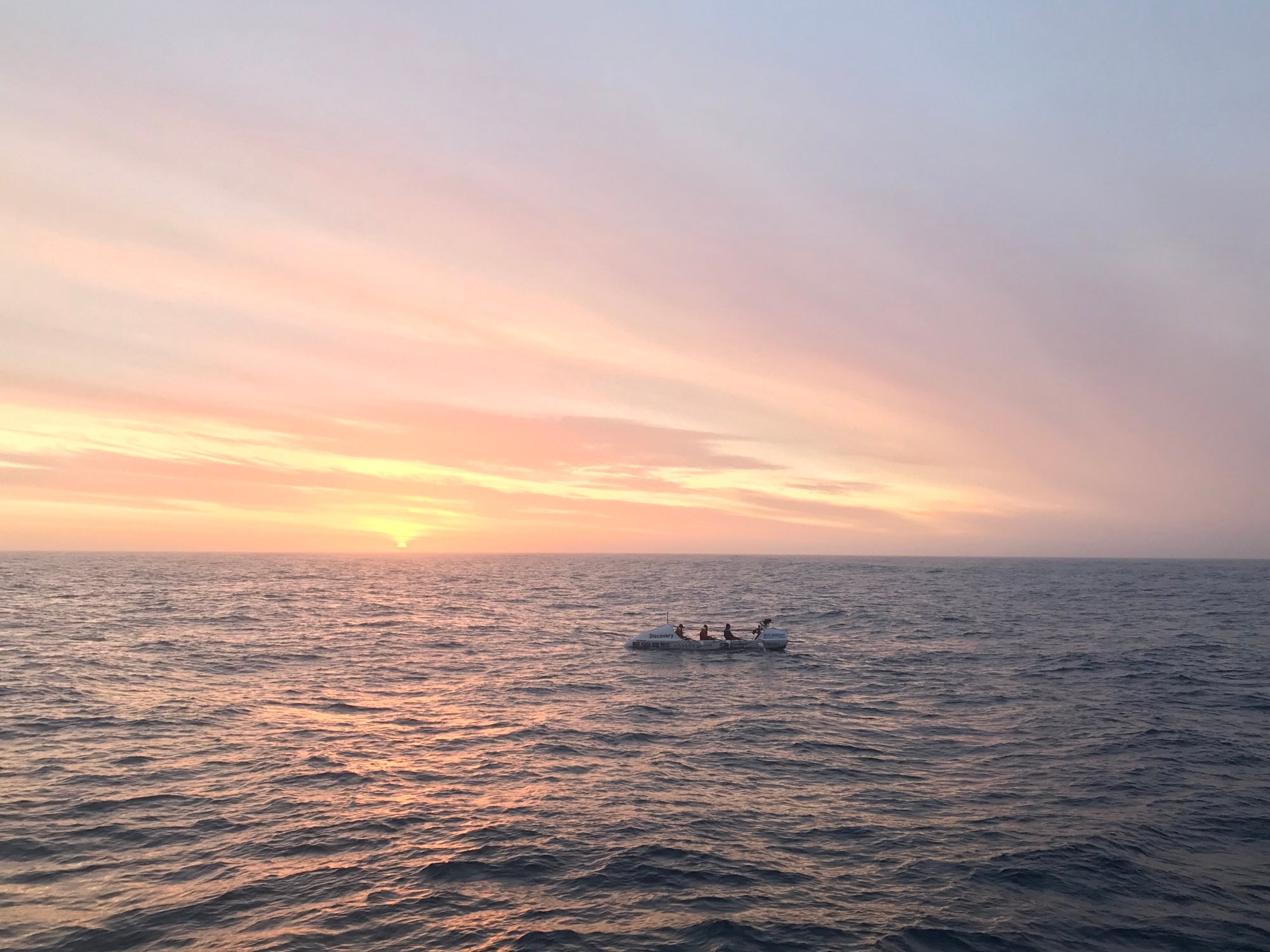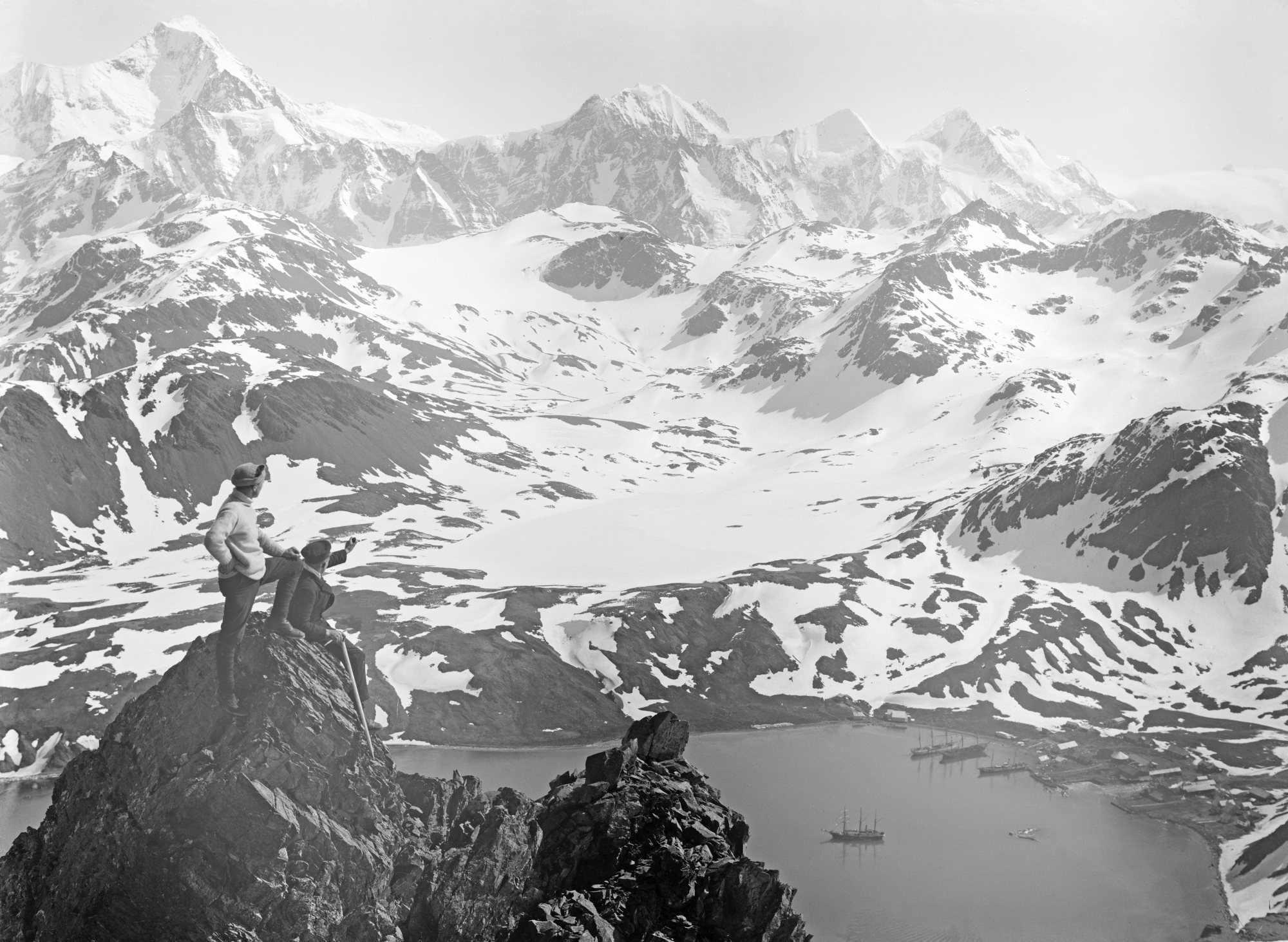
Fiann Paul rows across The Drake Passage in 2020 - he is now leading a team to recreate Shackleton’s voyage.
Photo: Handout
From SCMP by Mark Agnew
- Fiann Paul is set to lead a team of six ocean rowers, and hopes to become a ‘badass’ by notching up some world firsts
- Shackleton is famous for keeping all of his men alive despite his ship, the Endurance, being crushed by the ice
The crew will row in shifts – 1½ hours on, 1½ hours off – day and night for around 18 days, covering 1,481km across one of the most hazardous stretches of ocean on the planet.
They will be in a modern ocean rowing boat with cabins, so three can row while three sleep.
As per the Antarctic treaty, the team will be accompanied by a supervising vessel, which will house a documentary film team and researchers using the trip to gather data.
In 1914, British explorer Shackleton sailed for the Antarctic with his crew.
They were attempting to become the first people to travel across from one side of the Antarctic continent to the other, via the South Pole.
Their ship, the Endurance, became trapped in ice before reaching land, with their adventure going on to be one of the most famous and incredible stories of survival.
As per the Antarctic treaty, the team will be accompanied by a supervising vessel, which will house a documentary film team and researchers using the trip to gather data.
In 1914, British explorer Shackleton sailed for the Antarctic with his crew.
They were attempting to become the first people to travel across from one side of the Antarctic continent to the other, via the South Pole.
Their ship, the Endurance, became trapped in ice before reaching land, with their adventure going on to be one of the most famous and incredible stories of survival.

Paul and Douglas-Hamiton were both on the crew that crossed the Drake Passage.
Photo: Handout
Photo: Handout
The Endurance was crushed by ice, and the crew camped on the sea ice from November 1915 until April 1916.
When the ice broke up for summer, they paddled to Elephant Island in the lifeboats, and then stood on land for the first time in 497 days.
Most of the party remained on Elephant Island while a small group, led by Shackleton, took their tiny lifeboat and sailed for South Georgia.
Their prospects for survival were minimal – the ability to navigate on a tiny boat bucking like a horse was near impossible.
But it was their only choice.
They reached South Georgia 16 days later.
Their success is considered the greatest small boat journey of all time, made possible by ship captain Frank Worsley’s astounding navigation.
The ordeal was not over when they landed though, and they had to mountaineer across the unmapped island to a whaling station to seek help.
Shackleton returned to Elephant Island with the Chilean Navy in August, by which time the remaining men were beginning to suspect their tiny rescue mission had failed.
Not one of Shackleton’s men died, a testament to his leadership.

Frank Worsley and another crew member looking down on the Endurance in South Georgia before departing for the doomed adventure.
Photo: Frank Hurley
Photo: Frank Hurley
The rowing team recreating Shackleton’s journey is led by Icelander Fiann Paul.
He is accompanied by Mike Matson and Brian Krauskopf of the US, Jamie Douglas-Hamilton of the UK, Lisa Farthofer of Austria, and Stefan Ivanov of Bulgaria.
If successful, they will achieve three Guinness World Firsts: first to row the Scotia Sea, first to row from the Antarctic Continent, and first to row the Southern Ocean South to North.
“The Shackleton Mission is a chance for me to practice leadership in the most challenging and unforgiving of environments,” Paul, 42, said.
“Pack ice on a high swell is the scariest environment that a small rowing boat can ever encounter
“So yes, I want to be the badass who is going to achieve all these world’s firsts.
World’s first are the highest explorers’ trophies – the ownership of such titles never expires, because only once one can achieve something for the first time.
And achievement brings me joy.”
Another aim of the expedition is to earn a Polar Medal posthumously for Harry “Chippy” McNish, one of Shackleton’s crew members.
The Polar Medal is awarded by the UK government for outstanding achievements in polar regions.
McNish was the expedition’s carpenter and was crucial to the team’s survival after their ship sank.
In particular, he took the small lifeboat that was destined to cross from Elephant Island to South Georgia and made it sea worthy.
With limited supplies he raised the sides, strengthened the keel, covered the boat with a tarpaulin, and sealed the craft with a mixture of seal blood and flour.
Without his ingenuity and skill the crew would have surely perished.
However, earlier in the misadventure McNish had refused to haul the lifeboats across the ice.
He postured that he was no longer under Shackleton’s command, given the ship had sunk.
Shackleton was livid and read McNish the ship’s articles that said Shackleton was still in charge until they reached port.
McNish reluctantly complied.
Despite the service McNish provided as the carpenter, and as one of the few on the famous small boat crossing, Shackleton never forgot or forgave the slight, and McNish was one of just four among the crew denied the Polar Medal.
The boat of the 2023 expedition is named “Mrs Chippy” in memory of Chippy’s cat who accompanied the original voyage.
Paul already has a host of world firsts to his name.
He was the first and only person to achieve the Ocean Explorers grand slam, completing open-water crossings on each of the five oceans using human-powered vessels.
In 2020, Paul led a team, including Douglas-Hamilton, to row across the Drake Passage.
The journey from Cape Horn to Antarctica took 12 days.
It was not long until Paul thought up the Shackleton row.
“I think being an ambitious leader is to a degree like being an artist, a lot of creativity needs to be engaged to manifest an original project that brings some uniqueness,” Paul said.
“It was a sudden epiphany. At one point I knew I would like this expedition to be dedicated to Chippy’s case and the boat to be named after his cat.
“I thought it would be a great reminder for our team of our vision, as well as to announce to the world our intent to rewrite a historic wrong.
I thought that this way as a team, we will not only rewrite history, but also make some history of our own.”
Links :
No comments:
Post a Comment